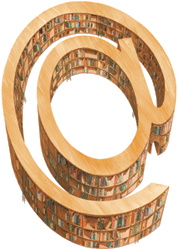The BIBLIO (Boosting digital skills and competences for librarians in Europe) Project is funded through Erasmus+ KA2: Cooperation for innovation and the exchange of good practices – Sector Skills Alliances.
The project addresses the skills gap in the library sector due to digital transformation that is changing the role of libraries and library professionals. The project targets library professionals, unemployed people in the library sector by enabling them to offer innovative services for users. It facilitates the acquisition of digital and transversal skills for library professionals by setting up a system for skills assessment, learning offer, validation, and recognition.
PROJECT OBJECTIVES
- To identify the existing and emerging skills needs for the library sector, mapping them to EQF and NQFs feeding these findings into the European Skills Panorama
- To identify the Europe-wide emerging job profiles in the library sector of the 21st century
- To support the development of highly skilled, qualified and mobile workforce in the sector, addressing the mismatch between formal education and labor market
- To develop a European VET curriculum that can be adapted to national needs
- To support the recognition of the new VET qualification at EU level, promoting quality assurance of VET curricula using EQAVET system
- To promote work-based learning and intergenerational learning in VET
WHAT WILL BE DONE?
The project starts with analyzing the training needs and offers in the library sector, in order to identify a set of emerging job role profiles . For each profile, a modular VET curriculum addressing EQF Level Five will be designed, applying a specific VET methodology based on learning outcomes and on the blended learning principles. The curricula will be based on a set of digital OERs (Open Educational Resources) supporting the acquisition of 40+ digital and transversal competences.
Based on the identified training contents, the partners will develop:
1) A MOOC addressed to European library professionals to help them gain identified competences (6-8 weeks, 100 librarians per piloting country; 400 total)
2) A Specialization Training course (240 hrs total; 25 trainees per country), including: face-to-face (20 hrs/5 days), online learning (160 hrs), project-based learning (40 hrs) and work-based learning (165 hrs) phases.
- Training will be delivered via an online platform that stimulates sharing and exchange of knowledge, experiences and best practices
- Work-based learning will be based on the principle of inter-generational learning
- European instruments will be applied: EQF – European qualifications framework, ECVET – European credit system for vocational education and training, and EQAVET – the European Quality Assurance in Vocational Education and Training
- Job role profiles will be mapped to ESCO – Classification of European Skills, Competences, Qualifications and Occupations and e-CF – European e-Competence Framework
The project will produce at least 40 modules:
- 20-25 modules for transversal competences (communication, entrepreneurship – mapped to EntreComp, leadership, etc.)
- 20-25 modules for digital skills that will be mapped to DigComp related to application design and development, electronic resource management, data access, blockchains, text and data mining, ICT quality strategy developments, etc.
The training programme will be tested in four piloting countries (Bulgaria, Greece, Italy, Latvia)
EXPECTED RESULTS
- Reports on skills gap in the library sector and on job role profiles
- Methodology and Training Toolkit
- VET Curricula
- Standards (the project foresees the application of ECVET; quality assurance in the VET curriculum using EQAVET, contribution to a European standard for learning outcomes and to ESCO, adoption of e-CF, mapping to EQF and NQF for participating countries)
- MOOC and Blended training course
- Online tools
- National sector skills alliances, including learners, libraries, VET organisations and other stakeholders
- Dissemination materials
- Communities of practice
PARTNERS
- University of Bari Aldo Moro (UNIBA), Italy – coordinator
- The Central Institute for the Union Catalogue of Italian Libraries and Bibliographic Information (ICCU), Italy
- European Grants International Academy (EGInA), Italy
- Center for vocational training at University of Library Studies and Information Technologies (ULSIT), Bulgaria
- Global Libraries – Bulgaria Foundation (GLBF), Bulgaria
- SIA DMG – Data Media Group, Latvia
- Culture Information Systems Centre (KISC), Latvia
- Hellenic Open University (HOU), Greece
- ALL DIGITAL, Belgium
- Public Libraries 2030 (PL2030), Belgium
DISCOVER MORE


